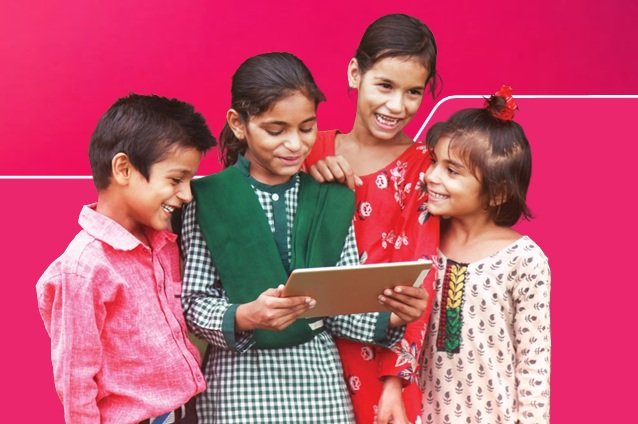
By Adarsh Kataruka
Corporate Social Responsibility (CSR) in India has come of age, from being an act of goodwill to becoming a structured, measurable force for national development. Building on India’s deep-rooted culture of giving, CSR found legal ground with the amendment to the Companies Act in 2013, making India the first nation to mandate social spending by eligible companies. Section 135 and Schedule VII of the Companies Act guide companies to invest in areas that reflect the country’s development priorities such as education, healthcare, environment, and rural development etc.
The journey from Compliance to Credibility
Over the years, CSR has evolved beyond compliance. Today, CSR is as much about building trust as it is about creating impact in the communities. The real beneficiaries of CSR are no longer just communities — they are the investors, who see CSR as a tool to measure and reflect corporate integrity and future readiness. Strong CSR performance along with profitability signals lower risk, high responsible governance, and long-term sustainability and stability. In a world increasingly shaped by purpose-led business, doing good for society has become synonymous with doing well for shareholders.
Technology- the Game Changer!
India’s digital revolution has redefined how CSR was imagined and is being executed. Activities that once relied on paper as records and offline Excel sheets have now moved to cloud platforms, real-time data centers, dashboards, and geo-tagged data and more. To add to it all, the neo-advancements and integration of AI, Big Data, and GIS mapping have made CSR more powerful, transparent, accountable, and impactful.
New-gen digital tools such as Looker (Google) Studio, Power BI, Tableau, and Google Earth Engine help organisations capture, map projects, outcomes, visualize reach, and communicate results with clarity. The transformation story of data-driven CSR isn’t just about efficiency — it’s about insights. Data and technology together are turning CSR activities in India, from erstwhile intuition-based outcomes, to intelligence-driven strategic impact.
A compelling example of technology adding value to communities through CSR is that of the digital financial literacy initiative through MGNREGS, where technology enabled direct payments to the workers, reducing pilferage of earnings and thus empowering rural households with more financial control. This is the new face of social impact where innovation met inclusion.

Bridging the Digital Divide
India continues to leap and make strides in growing its economy into a trillion-dollar and digitally empowered one. All of this while addressing the stark divide between connected and disconnected through such CSR-linked digital initiatives. According to the National Sample Survey (2020), only 24% of Indian households have access to smartphones and the internet; among whom, rural women and marginalised groups are most affected.
CSR investments focus more on education, health, and skilling for achieving their objectives. However, the critical role of digital empowerment for their success is largely underpinned and subverted. The NASSCOM Foundation reports that 90% of jobs in India today require a moderate level of digital literacy. Yet 60% of the workforce lacks a knowledge of the basics to be employed. This is where CSR can unleash its potential, playing a catalytic role by expanding digital access and literacy across India’s underserved regions.
Inclusion in Action: Community Tech Hubs
The creation of community-based tech hubs offers a practical, scalable model to ensure that the gap between technology and the learners in the intended communities is admonished. These hubs, set up in rural and semi-urban areas, have provided much-needed access to infrastructure, devices and internet connectivity, over and above training. These tech hubs serve specific purposes such as online learning, telemedicine and consultation, and availing dedicated platforms for entrepreneurs to manage selling and their e-commerce ventures.
The Ministry of Electronics and IT estimates that by 2030, the digital services in India could contribute $1 trillion to the country’s GDP. But the benefits will remain urban-centric and in silos attuned to technology, unless rural communities are included.
Another impediment that India faces is that of inequity. Distribution and adoption of digital financial inclusion remain highly gender-biased. A World Bank (2023) report notes that 42% of women who earn, across India, still remain outside the formal banking ecosystem, despite earning and account ownership. CSR programs, of recent, have strived in this direction to close this gap through community and women-centric training for UPI and digital payments, online banking, and availing digital government services.
Impact assessments of these CSR programs by SoulAce have highlighted that when women are digitally educated, especially for managing their financial transactions, they gain tremendous confidence over and above financial independence that have driven positive household and community level changes and development. Thus making simple CSR-fund-driven projects more impactful and sustainable.
***

Digital Inclusion for Collective Nation Building
Digital literacy is a tool for empowerment and reducing social disparity. Its ability to empower communities as a whole, beyond gender and or age, equips equity in the development of communities in a holistic way.
Inclusion of women, differently-abled persons, and rural citizens through digital platforms and systems only ensures that India’s unfailing growth story (Viksit Bharat) becomes inclusive by design. The World Economic Forum estimates that global digital inclusion could add $1 trillion to global GDP by 2025, with India among the biggest beneficiaries.
For companies, aligning CSR strategies with digital inclusion is not about philanthropy only anymore. Today, it represents a promise to contribute to nation-building through the adoption of technology and digitization. A digital device in India today represents a gateway to opportunities to access education, empowerment and development that is being realised through integrated CSR commitments.
Corporate investments in digital literacy and access, are rapidly investing in the future — a future where technology and humanity move forward together. CSR, in its truest sense, has the power to turn this vision into reality — powering India’s digital leap while ensuring no one is left behind.
***
The Author: Adarsh Kataruka is an eminent expert in the CSR & Development sector and Managing Director of SoulAce.
About SoulAce: SoulAce is India’s leading CSR consulting and monitoring & evaluation firm. Across the 16+ years of practice and work, SoulAce has delivered more than 3,000 CSR projects across all states and remote districts of India. SoulAce’s major verticals include CSR Impact Assessment and Fund Utilization Reviews, Strategy, Advisory, CSR Monitoring & Evaluation, and Employee Volunteering support and services. The firm also offers a CSR grant management platform to help organizations meet compliance requirements.
***
Terms & Conditions: India CSR does not permit other Websites/agencies to copy or reproduce, or reprint the above article/feature in any form or means.







